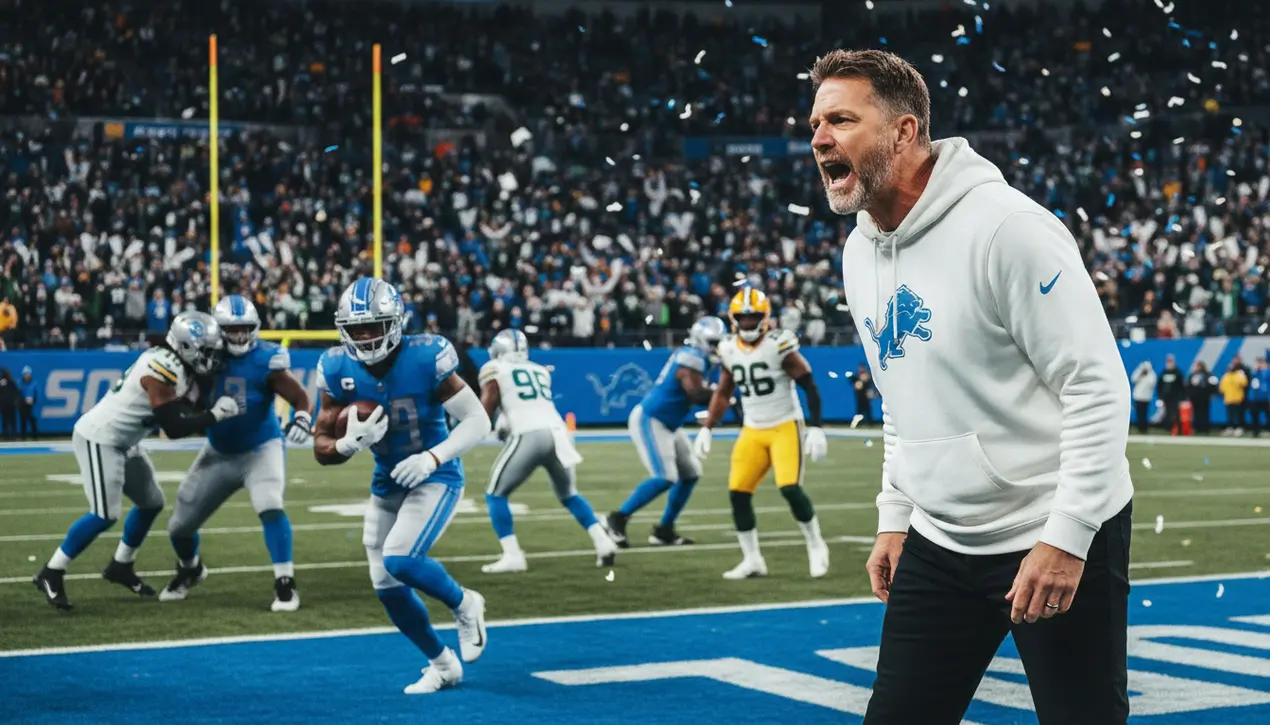
SportfootballPremier League
What’s changed since Week 1? How the Lions have succeeded, struggled in 2025
JA
Jack Turner
3 hours ago7 min read
For the Green Bay Packers faithful looking ahead to Thanksgiving, understanding the evolution of the Detroit Lions since their Week 1 encounter is paramount. The Lions' offense, under the new play-calling stewardship of head coach Dan Campbell, has become a fascinating case study in adaptation.While they remain a scoring juggernaut, averaging nearly 30 points per game—a figure that would make any offensive coordinator proud—the transition hasn't been seamless. Campbell’s takeover from the more deliberate John Morton has yielded a volatile but potent output: 44 points, 34 points, and a concerning 9 points in his three-game tenure.This isn't just a change in personnel; it's a philosophical shift. Campbell, who knows his roster with the intimacy of a general surveying his troops, is learning to leverage his weapons in real-time, a stark contrast to the plodding, adjustment-averse approach the Packers exploited in the season opener.At the heart of this offensive engine is Jared Goff, a quarterback whose efficiency metrics place him among the league's elite, yet whose performance is as predictable as a weather vane in a hurricane when pressure arrives. His EPA per play plummets from a top-ten 0.13 to a dismal -0. 43 when hurried, a vulnerability exacerbated by an offensive line that, at times, allows pressure in under 2.5 seconds—the worst mark in the NFL. The chess match in the trenches, particularly with replacement left guard Kayode Awosika, will be the decisive battleground; if Green Bay’s defensive front can consistently invade that pocket, they can effectively neutralize Detroit's most dangerous asset.The Lions have shrewdly pivoted to feature the dynamic Jahmyr Gibbs more prominently, a player whose dual-threat capability evokes comparisons to a younger, more explosive version of Alvin Kamara, capable of taking over a game through both the air and ground. He and the ever-reliable Amon-Ra St.Brown form the core of the attack, but the supporting cast reveals cracks. The season-ending loss of tight end Sam LaPorta has created a production void that the combination of Brock Wright and the gargantuan lineman Dan Skipper has failed to fill, while the inconsistency of deep threat Jameson Williams—who has vanished from the stat sheet twice already—places immense strain on the primary options, especially with Kalif Raymond sidelined.Defensively, the Lions present a paradox. On paper, they are a top-ten unit in pressures, sacks, and stifling the run, yet their path to quarterback disruption is methodical, averaging a league-slow 2.9 seconds. This is where the strategic evolution under coordinator Kelvin Sheppard becomes critical.Moving away from the predictable, heavy man-coverage schemes of the Aaron Glenn era, the Lions have incorporated sophisticated disguise elements, showing quarterbacks one coverage shell before morphing into another post-snap. This modernization, coupled with the return of key starters like defensive tackle Alim McNeill, has bolstered a secondary that has allowed only one 300-yard passer all season.However, this unit is coming off its worst performance of the year, a game marred by blown assignments. History suggests teams coached with Dan Campbell's brand of resilience rarely suffer back-to-back defensive collapses, setting the stage for a Thanksgiving clash that is less a rematch and more a reckoning between two teams that have fundamentally transformed since their first meeting.
#featured
#Detroit Lions
#Green Bay Packers
#Thanksgiving game
#Jared Goff
#offensive strategy
#defensive analysis
#team injuries
Stay Informed. Act Smarter.
Get weekly highlights, major headlines, and expert insights — then put your knowledge to work in our live prediction markets.
Related News
Comments
Loading comments...
© 2025 Outpoll Service LTD. All rights reserved.